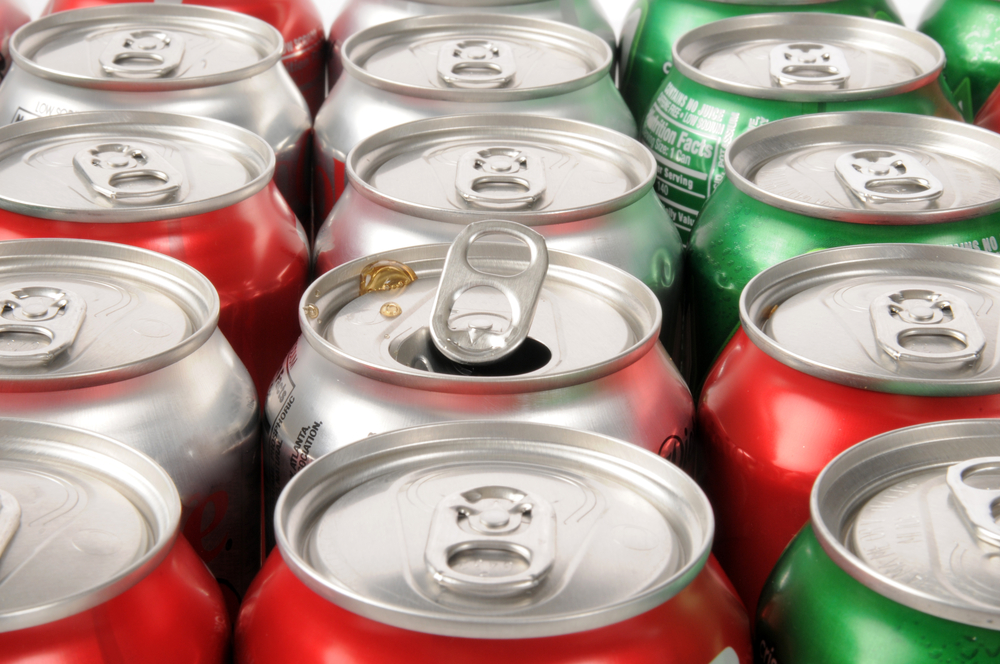Many countries have introduced a sugar tax in order to improve the health of their citizens.
As a result, food and drink companies are changing their products to include low and zero-calorie sweeteners instead of sugar. However, there is growing evidence that sweeteners may have health consequences of their own.
New research from the US, presented at the annual Experimental Biology conference in San Diego, found a link with consuming artificial sweeteners and changes in blood markers linked with an increased risk of obesity and type 2 diabetes in rats. Does this mean we need to ditch sweeteners as well as sugar?
Sweeteners are generally “non-nutritive” substances meaning we can’t use them for energy. Some of these compounds are entirely synthetic chemicals, produced to mimic the taste of sugar. These include saccharin, sucralose and aspartame. Others sweeteners are refined from chemicals found in plants, such as stevia and xylitol. Collectively, sweeteners are being consumed in increasing amounts with most diet or low-calorie food and drink containing some form of non-nutritive sweetener.
Combating or fuelling the obesity crisis?
Artificially sweetened foods and drinks have become popular largely due to the growing worldwide obesity crisis. As sugar contains four calories per gram, sweet foods and drinks are normally highly calorific. In principle, by removing these calories we reduce energy intake and this helps to prevent weight gain.
Increasingly, however, evidence suggests that consuming artificially sweetened products might be associated with an increased risk of being overweight or obese, although this is controversial. If true, it suggests that using sweeteners is fuelling, not fighting obesity. Research has suggested that consuming lots of artificial sweeteners scrambles the bacteria in our gut, causing them to make our bodies less tolerant to glucose, the main building-block of sugar.
Read more:
Artificial sweeteners may make you fat
The new research, from the Medical College of Wisconsin and Marquette University, looked at some biological effects of sweeteners in rats and in cell cultures. They wanted to know if artificial sweeteners affect how food is used and stored. These are called metabolic changes and the research combined many different aspects of metabolism to build an overall picture.
The team also looked at the impact of sweeteners on blood vessel health by studying how these substances affect the cells that form the inner lining of blood vessels.
The scientists gave rats food that was high in either sugar (glucose or fructose) or calorie-free artificial sweeteners (aspartame or acesulfame potassium). After three weeks they saw significant negative changes in both groups of rats. These changes included the concentrations of blood lipids (fats).

They also found that acesulfame potassium, in particular, accumulated in the blood and harmed the cells that line blood vessels. The study authors state that these changes are “linked to obesity and diabetes”. These results suggest that consuming sweeteners change how the body processes fat and gets its energy at a cellular level.
Read more:
More evidence that low-calorie sweeteners are bad for your health
Limit your intake
What does this mean for the average consumer of artificial sweeteners? As the study was performed in animals and not humans it would be wrong to draw firm conclusions about what might happen in people. The findings of the study do, however, add to the growing body of research that suggests that sweeteners are not benign alternatives to sugar.
The European Food Safety Authority suggests a daily limit to most artificial sweeteners of around five milligrams per kilogram of body weight, per day. With so many foods including artificial sweeteners now, it is relatively easy to reach this limit.
It is important to note that not all sweeteners are equal. This recent study focused on artificial sweeteners, like most of the research that has identified negative effects. Some sweeteners are associated with health benefits.
Stevia, for example, has been shown to improve blood pressure and glucose tolerance while xylitol has been shown to help prevent tooth decay. This means that choosing the type of sweetener that you use may be more important than choosing a sweetener over sugar.
Read more:
Coke Life lands a blow against sugar, but its worthy credentials could still be trouble
It is likely that the best advice is the blandest: everything in moderation. There is no such thing as good or bad food, only good or bad amounts. Maybe avoid consuming too much of either sugar or sweetener, especially in drinks.
James Brown, Senior Lecturer in Biology and Biomedical Science, Aston University and Alex Conner, Senior Lecturer in Biomedical Sciences, University of Birmingham
This article was originally published on The Conversation. Read the diabetes-and-obesity-95314″>original article.
![]()

